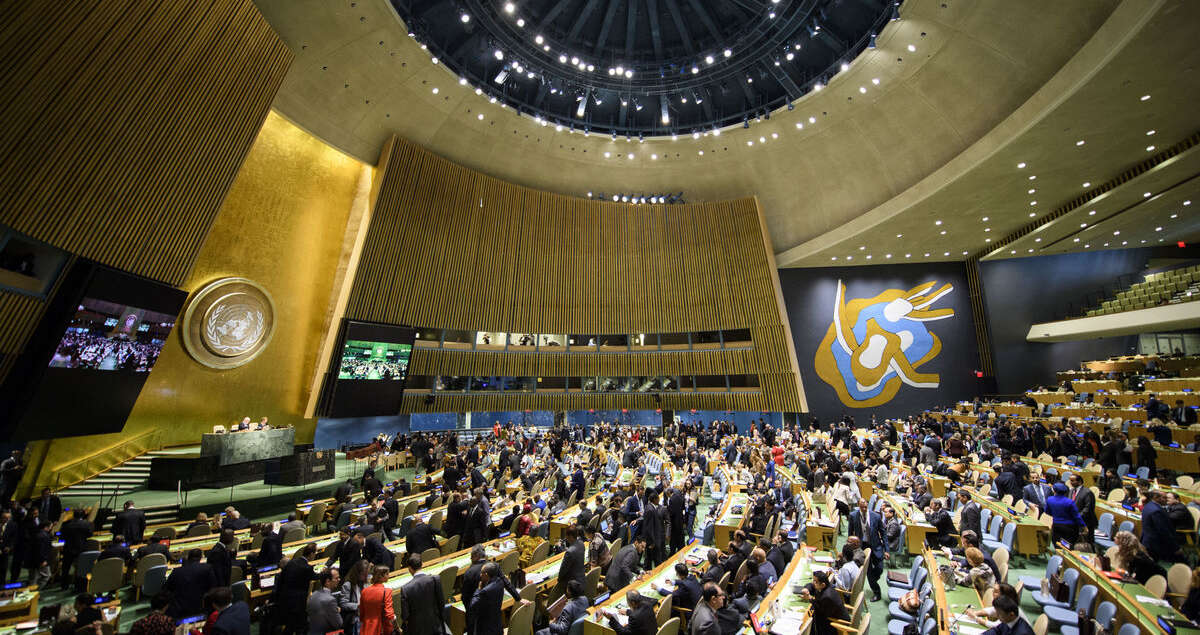The United Nations General Assembly: A Global Forum for Diplomacy and Cooperation
Introduction
The United Nations General Assembly (UNGA) stands as a beacon of hope in a world marked by diverse challenges, conflicts, and opportunities. Established in 1945, the UNGA is one of the principal organs of the United Nations, embodying the spirit of international collaboration and diplomacy. This article delves into the significance, functions, and impact of the UNGA, highlighting its role as a crucial platform for addressing global issues and fostering cooperation among nations.
A Multilateral Gathering
The UNGA comprises all 193 member states of the United Nations, making it the most inclusive international forum. Each year, representatives from these nations converge in New York City for the General Assembly session, which typically runs from September to December. This gathering serves as a unique platform where leaders, diplomats, and officials from around the world can engage in open and constructive dialogue.
Key Functions of the UNGA
- Policy Setting: The UNGA plays a pivotal role in setting the agenda for the United Nations. It discusses and formulates resolutions on a wide range of global issues, including peace and security, human rights, sustainable development, and climate change. These resolutions guide the actions and policies of member states and international organizations.
- Peace and Security: While the United Nations Security Council is responsible for maintaining international peace and security, the UNGA can make recommendations on these matters. It provides a platform for member states to address conflicts, share perspectives, and seek peaceful resolutions.
- Development: Achieving sustainable development is a central objective of the UNGA. The 2030 Agenda for Sustainable Development, adopted by all member states in 2015, is a testament to the UNGA’s commitment to eradicating poverty, promoting economic growth, and ensuring environmental sustainability.
- Human Rights: The UNGA oversees the work of various human rights bodies and promotes the protection and promotion of human rights globally. It has established mechanisms to address violations and promote awareness of human rights issues.
- Budget and Administration: The UNGA approves the United Nations budget and financial arrangements. It also elects the Secretary-General and appoints members of the International Court of Justice.
A Platform for Diplomacy
One of the UNGA’s most vital functions is providing a platform for diplomacy. During the General Debate, which marks the beginning of each session, world leaders take the podium to address global issues, present their nation’s perspectives, and engage in bilateral and multilateral discussions. These interactions are vital for building diplomatic relations, resolving conflicts, and advancing international cooperation.
The Power of Resolutions
Resolutions passed by the UNGA carry significant weight in international affairs. While they are not legally binding, they serve as powerful expressions of the international community’s will. Resolutions have been instrumental in shaping global policies and norms. For instance, the Universal Declaration of Human Rights, adopted by the UNGA in 1948, has become a cornerstone of international human rights law.
The UNGA and the Global Agenda
The UNGA has been at the forefront of addressing pressing global challenges. It has played a pivotal role in efforts to combat climate change, promote gender equality, respond to humanitarian crises, and address health pandemics, such as the COVID-19 pandemic. Its ability to convene leaders and mobilize resources makes it an indispensable actor in the pursuit of global peace and prosperity.
Conclusion
The United Nations General Assembly remains a symbol of hope and a testament to the belief that nations, despite their differences, can come together to address shared challenges. Through its functions as a policymaking body, a platform for diplomacy, and a catalyst for global action, the UNGA continues to shape the course of international relations and foster cooperation among nations. As our world faces increasingly complex and interconnected challenges, the UNGA’s role remains as vital as ever in forging a brighter future for all of humanity.

